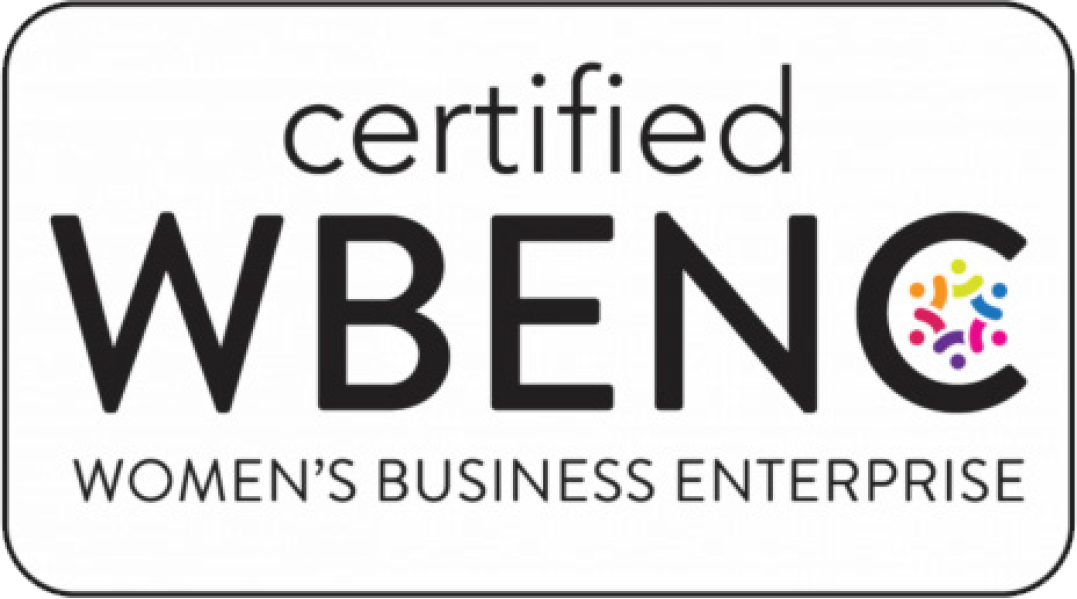From small businesses to large corporations, everyone has information to share. Regardless of how it’s distributed, to be effective, it needs to be well-communicated—captivating, accurate and articulate. Copywriters help businesses and organizations achieve this. Sometimes all it takes is one great line that packs a punch. Other times, the audience needs more explanation and detail. That’s where I come in.
At WordsFresh, I’m the specialized topics writer and editor. I work on longer form writing projects that can include reports, white papers, e-books, how-to guides and articles. This means I’m often required to present complex or unfamiliar information in a way that’s interesting and easy to understand. During my career as a writer and editor, I’ve worked on topics spanning engineering and science, business, education and the social sciences. When I tell people about this, one question that tends to come up is, “If you’re not an expert on these topics, how do you write about them?”
It’s a fair question. After all, isn’t an economist better qualified to write about U.S. job market trends, or a civil engineer better qualified to write about innovations in green infrastructure? As counterintuitive as it may seem, not necessarily. There are a couple of reasons for this. When you’re entrenched in a topic, you may not be able to discern what non-experts struggle to understand about it. Also, copywriters are, after all, experts in written communication. This expertise is vital in producing a high-quality report, white paper, article or other written material that will produce results. Which brings us back to our original question: How does a writer come to understand a complex topic to write about it?
For me, writing about complex topics is achieved in part due to my nerdy obsession with learning stuff. I simply enjoy knowing about different topics, and this desire drives me to dive into them and figure them out. To work as a copywriter or editor, you have to have an innate thirst for knowledge and ability to wrap your head around a variety of subjects and industries. Most writers and editors can attest to the mental reserve of random information they’ve amassed in their work. Beyond that, there are several different strategies I use to process information I’m working with and then communicate it in an intelligent and interesting way. I like to think of these strategies in three different categories: research, writing/editing and formatting.
Researching the topic
When I receive an assignment, the first thing I do is get to know the subject matter. Typically, I gather information in three ways:
- Receiving data or background information from the client
- Interviewing subject matter experts
- Googling the topic
If I was asked to write a report on the types and benefits of green stormwater infrastructure, for example, I would start by reviewing any data or information the client shared with me upfront. I would also interview the client or other experts within the organization to ask questions and get a sense of how they talk about the topic in their own words. And, naturally, I would turn to the internet to see what I could find there. Through this research process, there are some things I keep an eye out for to aid my understanding of the topic:
- Keywords associated with the topic and how they’re used or defined by people in that particular field. For instance, what is biofiltration? What is an extensive green roof vs. an intensive green roof?
- How other organizations approach the topic in question. This might include looking at how different municipalities across the country are incorporating green infrastructure into their stormwater systems, or if there are engineering firms that specialize in green infrastructure.
- Anything controversial or sensitive about the topic that I should be mindful of. Using the green infrastructure example, this might include paying attention to how green practices impact taxes or how community members tend to respond to green infrastructure implementation.
The writing process
Once I’ve gathered the information necessary for the project, I start the writing or editing phase by bringing everything together in an outline. This is helpful in determining the most logical way to present the topic to the intended audience, and it helps me organize my thoughts around the subject matter.
After outlining, the process of writing itself can help clarify a topic. Writing forces the brain to analyze and make connections. As I write, I may notice holes in the information or develop new questions. This is significant. If I was already an expert on the topic, rather than a writer learning about it for perhaps the first time, I might not pick up on where the information should be simplified for the reader or where additional explanation is necessary. This is why there is value in hiring a writer who can approach a topic with fresh perspective.
Formatting for clarity
While outlining and writing, I am constantly keeping an eye on format. Not only does good formatting guide the audience through the topic, it also helps the writer present information logically and clearly. To ensure good formatting, I focus on the following:
- Writing paragraphs and sections that are easy to digest and void of extraneous information.
- Creating headings and subheadings that act as a roadmap through the document.
- Including graphs, tables and images to enhance understanding of the topic.
- Using bulleted lists or numbered lists to break down information.
Research, the process of writing/editing and ensuring good formatting—combined with an interest and capacity for broad-ranging knowledge —all contribute to a copywriter’s ability to write quality pieces covering a variety of topics. Just as an engineer, scientist or business executive receives education and training specifically tailored to their work, a writer is trained to process and communicate information accurately and effectively. The takeaway: you can trust a good copywriter to transform your information, data and ideas (even the challenging ones) into high-quality, professional written materials.
From small businesses to large corporations, everyone has information to share. Regardless of how it’s distributed, to be effective, it needs to be well-communicated—captivating, accurate and articulate. Copywriters help businesses and organizations achieve this. Sometimes all it takes is one great line that packs a punch. Other times, the audience needs more explanation and detail. That’s where I come in.
At WordsFresh, I’m the specialized topics writer and editor. I work on longer form writing projects that can include reports, white papers, e-books, how-to guides and articles. This means I’m often required to present complex or unfamiliar information in a way that’s interesting and easy to understand. During my career as a writer and editor, I’ve worked on topics spanning engineering and science, business, education and the social sciences. When I tell people about this, one question that tends to come up is, “If you’re not an expert on these topics, how do you write about them?”
It’s a fair question. After all, isn’t an economist better qualified to write about U.S. job market trends, or a civil engineer better qualified to write about innovations in green infrastructure? As counterintuitive as it may seem, not necessarily. There are a couple of reasons for this. When you’re entrenched in a topic, you may not be able to discern what non-experts struggle to understand about it. Also, copywriters are, after all, experts in written communication. This expertise is vital in producing a high-quality report, white paper, article or other written material that will produce results. Which brings us back to our original question: How does a writer come to understand a complex topic to write about it?
For me, writing about complex topics is achieved in part due to my nerdy obsession with learning stuff. I simply enjoy knowing about different topics, and this desire drives me to dive into them and figure them out. To work as a copywriter or editor, you have to have an innate thirst for knowledge and ability to wrap your head around a variety of subjects and industries. Most writers and editors can attest to the mental reserve of random information they’ve amassed in their work. Beyond that, there are several different strategies I use to process information I’m working with and then communicate it in an intelligent and interesting way. I like to think of these strategies in three different categories: research, writing/editing and formatting.
Researching the topic
When I receive an assignment, the first thing I do is get to know the subject matter. Typically, I gather information in three ways:
- Receiving data or background information from the client
- Interviewing subject matter experts
- Googling the topic
If I was asked to write a report on the types and benefits of green stormwater infrastructure, for example, I would start by reviewing any data or information the client shared with me upfront. I would also interview the client or other experts within the organization to ask questions and get a sense of how they talk about the topic in their own words. And, naturally, I would turn to the internet to see what I could find there. Through this research process, there are some things I keep an eye out for to aid my understanding of the topic:
- Keywords associated with the topic and how they’re used or defined by people in that particular field. For instance, what is biofiltration? What is an extensive green roof vs. an intensive green roof?
- How other organizations approach the topic in question. This might include looking at how different municipalities across the country are incorporating green infrastructure into their stormwater systems, or if there are engineering firms that specialize in green infrastructure.
- Anything controversial or sensitive about the topic that I should be mindful of. Using the green infrastructure example, this might include paying attention to how green practices impact taxes or how community members tend to respond to green infrastructure implementation.
The writing process
Once I’ve gathered the information necessary for the project, I start the writing or editing phase by bringing everything together in an outline. This is helpful in determining the most logical way to present the topic to the intended audience, and it helps me organize my thoughts around the subject matter.
After outlining, the process of writing itself can help clarify a topic. Writing forces the brain to analyze and make connections. As I write, I may notice holes in the information or develop new questions. This is significant. If I was already an expert on the topic, rather than a writer learning about it for perhaps the first time, I might not pick up on where the information should be simplified for the reader or where additional explanation is necessary. This is why there is value in hiring a writer who can approach a topic with fresh perspective.
Formatting for clarity
While outlining and writing, I am constantly keeping an eye on format. Not only does good formatting guide the audience through the topic, it also helps the writer present information logically and clearly. To ensure good formatting, I focus on the following:
- Writing paragraphs and sections that are easy to digest and void of extraneous information.
- Creating headings and subheadings that act as a roadmap through the document.
- Including graphs, tables and images to enhance understanding of the topic.
- Using bulleted lists or numbered lists to break down information.
Research, the process of writing/editing and ensuring good formatting—combined with an interest and capacity for broad-ranging knowledge —all contribute to a copywriter’s ability to write quality pieces covering a variety of topics. Just as an engineer, scientist or business executive receives education and training specifically tailored to their work, a writer is trained to process and communicate information accurately and effectively. The takeaway: you can trust a good copywriter to transform your information, data and ideas (even the challenging ones) into high-quality, professional written materials.


